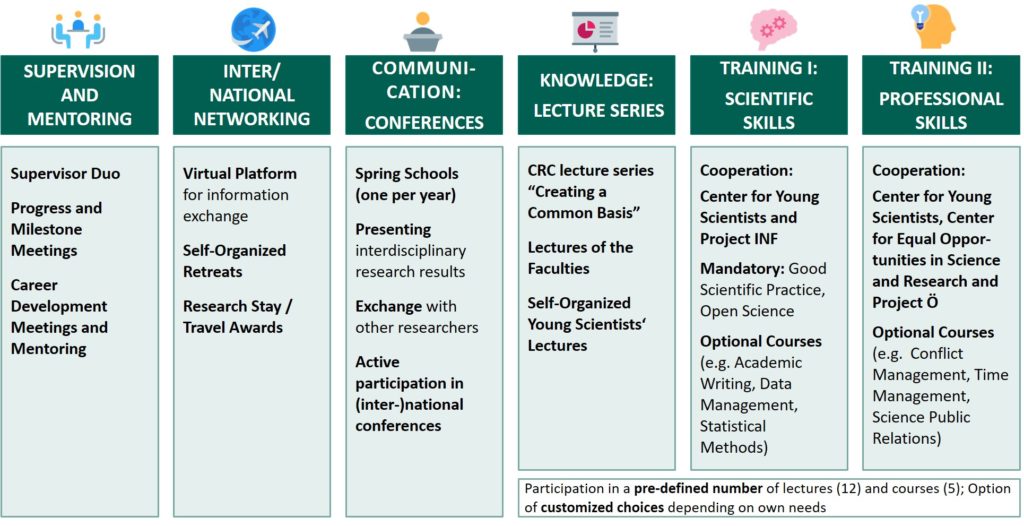One collaborative research center—eight cooperating faculties. Researchers with varied academic backgrounds using diverse approaches to investigate how humans and artificial bodies may best interact.
An important element in this multifaceted endeavor is the support and promotion of young scientists. The graduate program (MGK) of the collaborative research center (CRC) Hybrid Societies will support them in acquiring key qualifications and building their own career.
The program’s content reflects the PhD students’ diverse academic backgrounds and scientific interests. For the most part, young scientists in the CRC are free to choose from a wide range of different offers. Still, the MGK team always needs to ensure an adequate quality of the program’s various elements and thus of the training of the PhD students. These elements include lectures, courses, workshops, and schools as well as the opportunity for research stays abroad.
However, there are some mandatory topics which are essential for every scientist: good scientific practice and Open Science. Furthermore, the MGK supports and complements supervision and mentoring structures and fosters networking with inter-/national researchers.
In close cooperation with the respective institutions of the TU Chemnitz, the MGK will also offer measures to further equality. In sum, we have devised a set of interlinked measures to help the PhD students to successfully complete their doctorate and to pursue their career of choice.

As scientific manager of the MGK, I am responsible for organizing its scientific program and the coordination of the MGK office. I joined the CRC “Hybrid Societies” in April 2020 after completing my habilitation on biological and behavioral predictors of differential affective responsivity in 2019 at the TU Dresden. Furthermore, in the past eight years I was involved in organizing the graduate program of another CRC.
Nevertheless, organizing and coordinating such programs while taking individual needs and preferences into account and maintaining high standards can be a bit of a challenge and feel at times indeed like herding cats. However, so far, the herding is going quite well—despite restricting measures imposed due to COVID-19.
Almost all doctoral positions in the CRC have been filled and the PhD students have been integrated in the MGK. Practically all of them have already attended their first scientific events recommended or organized by the MGK. Networking has begun and although currently it takes place mainly online, we were able to establish a functioning exchange thanks to the Confluence platform and the unfailing support of our colleagues from projects INF (Information infrastrukture) and Z (scietific administration).
The representative of the PhD student has recently been elected and will serve on the CRC’s Executive Board for the next year. The MGK-organized lecture series “Creating a Common Basis” on interdisciplinary research has started and the yearly CRC School is planned for autumn, although like for any larger gathering, we are still not sure whether we will be able to meet on-site or whether this will be an online event.
Thus, although health regulations make improvisations necessary, we are looking forward to many inspiring events and joint efforts to move the CRC forward.
Dr. Diana Armbruster (Coordinator Research Training Group)

